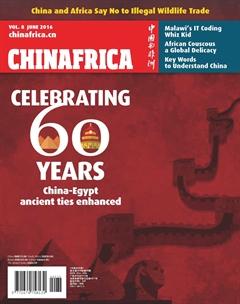Why We Should Stay Optimistic

Chinas flagging foreign trade since the middle of last year has raised public concerns over whether foreign trade is still an engine of the countrys economic growth. investor sentiment remains bearish due to a contraction in trade. Mei Xinyu, a researcher at the chinese Ministry of commerces international trade and economic cooperation institute, believes while more attention should be given to the temporary negative trade growth, the phenomenon should not be over-interpreted as foreign trade is still a key driver for growth.
THE long-term rise in exports has made an undeniable contribution to Chinas economic growth. As the worlds biggest commodities trader, Chinas reliance on foreign trade was the highest among the worlds economic powers for many years. But from 2012, the trend reversed as Chinas GDP growth exceeded its trade growth and trade suffered even negative growth.
In addition, in the face of rising labor costs and limited land resources, as the world demand for labor-intensive manufacturing is sluggish, China is endeavoring to upgrade its laborintensive industry. It is necessary to avoid traps and challenges such as the hollowing-out that occurred in the labor-intensive industries in the United States and Japan earlier.
Nevertheless, the downward trade growth and temporary negative territory of trade growth have not downgraded Chinas position in the international trading system or reduced its share.
First, price changes have contributed to exaggerating the degree of slowing and even temporary negative growth in Chinas imports and exports.
Second, due to changes in the growth base, an incremental change generated by a modest increase in foreign trade today equals the rocketing growth rates in the past.
Third, the considerable trade surplus has not only helped prevent Chinas economy from a possible collapse but also played an irreplaceable role in stabilizing the yuans exchange rate and market expectations.
Fourth, Chinas foreign trade structure keeps improving and upgrading.
Finally, given the fact that the global economy has been in a stage of low growth, international trade may enter into negative territory for a period of time. Chinas trade performance excels that of its main international competitors despite a downturn in exports and imports. All this has helped further raise its status in the international trading system.
Upgrading targets There is no need to continue to sacrifice micro-market benefits for macro benefits. China should take the lead in global trade in terms of international trade rule making, global value chains and efficient allocation and utilization of global resources. Given this, it needs to advance supply-side structural reforms and promote economic development quality and efficiency to push forward its transformation from a trader of quantity to a trader of quality.
Many foreign trade companies are accelerating transformation and upgrading, paying more attention to product quality and services instead of sacrificing quality for the sake of price. The complications of a sagging global economy pose a serious challenge to Chinas foreign trade while bringing about opportunities.
China has been able to shift its focus to the domestic market, decreasing the reliance on the global market under the “new normal” circumstances of the Chinese economy. Such a policy will play a significant role in boosting its industrial competitiveness.
New mode of growth Innovation is crucial to unleash the potential of Chinas trade development in the new normal economy.
First, China will do more to streamline administration. It will delegate more power to lowerlevel governments and society while improving the efficiency of public services to create a favorable envi-ronment for the development of its industry and trade.
The government has stepped up the pace of innovation in trade management, created a good environment for business with a sounder legal system, and implemented a series of major strategies despite the sagging foreign trade in 2015. These strategies include building a single window system, promoting bilateral free trade areas, the Belt and Road Initiative, and international industrial capacity cooperation.
Second, more constant efforts are needed to innovate commodity trading. It asks for the country to upgrade its industrial and commodity structure with continuous technological innovation. Meanwhile, enterprises have been established as the main innovation entities.
The integration of trade in commodities and services is equally important. There is still a great gap in the service trade of China and other developed countries like the United States. Many enterprises consider services in commodities trading an important tool to secure their future. As Chinas economy grows, more Chinese enterprises and individuals are going overseas for diversified work, such as research and development, consulting, management, and marketing. The top priority for those enterprises is to develop the “product plus service” strategy, which will create more employment opportunities for young people of the post-90s and post-2000 generations in China.
Third, China should speed up upgrading and transformation in the mode of trade through exploring ways to push forward general trade from processing trade, on one hand, and on the other, upgrading technological tools.
In recent years, millions of small and micro enterprises and natural persons have earned their first bucket of gold through cross-border e-commerce platforms and international procurement, which has greatly reduced the threshold to access the trade sector and significantly facilitated trade and business. This new business model and technological innovation, combined with mass innovation and entrepreneurship, has boosted the vitality of foreign trade and reaped great social and economic benefit.
In the long run, we need to put significant effort into making the real economy attractive to more people, as right now the biggest obstacle is the decline in enthusiasm for Chinas manufacturing industry.
Amid the global economic slowdown, we could moderately lower expectations for our absolute growth, but should remain confident that the growth rate will still be higher than the main competitors so as to strengthen Chinas status in the international economic and trade system.

